
CHINAS LEGALISTS
 NEW STUDIES IN ASIAN CULTURE
NEW STUDIES IN ASIAN CULTURE
CHINAS LEGALISTS
The Earliest Totalitarians and Their Art of Ruling
Zhengyuan Fu
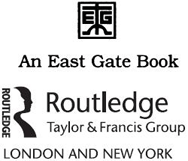
First published 1996 by M.E. Sharpe
Published 2015 by Routledge
2 Park Square, Milton Park, Abingdon, Oxon 0X14 4RN
711 Third Avenue, New York, NY 10017, USA
Routledge is an imprint of the Taylor & Francis Group, an informa business
Copyright 1996 Taylor & Francis. All rights reserved.
No part of this book may be reprinted or reproduced or utilised in any form or by any electronic, mechanical, or other means, now known or hereafter invented, including photocopying and recording, or in any information storage or retrieval system, without permission in writing from the publishers.
Notices
No responsibility is assumed by the publisher for any injury and/or damage to persons or property as a matter of products liability, negligence or otherwise, or from any use of operation of any methods, products, instructions or ideas contained in the material herein.
Practitioners and researchers must always rely on their own experience and knowledge in evaluating and using any information, methods, compounds, or experiments described herein. In using such information or methods they should be mindful of their own safety and the safety of others, including parties for whom they have a professional responsibility.
Product or corporate names may be trademarks or registered trademarks, and are used only for identification and explanation without intent to infringe.
Library of Congress Cataioging-in-Publication Data
Fu, Zhengyuan.
Chinas legalists: the earliest totalitarians and their art of ruling / Zhengyuan Fu.
p. cm.
An East gate book.
Includes bibliographical references and index.
ISBN 1-56324-779-8 (hardcover: alk. paper).ISBN 1-56324-780-1 (pbk.; alk. paper)
1. Political scienceChinaHistory.
2. ChinaPolitics and governmentTo 221 B.C.
I. Title.
JA84.C6F776 1996
321.601dc20
95-52835
CIP
ISBN 13: 9781563247804 (pbk)
ISBN 13: 9781563247798 (hbk)
To my wife, Qin Lu
Contents
This is a short volume introducing the political philosophy of one of Chinas ancient pre-Qin schools of philosophers, the Legalists (fa jia). Most of the major tenets of this school were formulated during the Warring States period (481221 B.C.) of Chinese history. More than twenty-three hundred years ago, members of this school of Chinese political philosophy perfected the science of government and art of statecraft, far surpassing Machiavelli.
Regrettably, most Western readers know very little about this school, which has exerted immense impact on the political development of China. At present, in almost all social science and humanity departments of higher learning in the West, an elementary knowledge of Machiavelli is a requisite. However, Han Fei and other Legalists remain little known to most Western college students majoring in political science, sociology, or other social science disciplines.
This volume about Chinas ancient Legalists is intended for the general Western public, including sinologists who do not specialize in ancient Chinese political philosophy. The purpose of this book is to give the reader a taste of the style and spirit of the Legalist discourse, which are mostly unfamiliar to the general and scholarly community in the West. There are yet few, if any, monographs in the English language dealing exclusively with this school of ancient Chinese political philosophy. Quite a number of books deal with the Confucian school, and even the Huang-Lao school, but the overwhelming impact of the Legalists remains largely neglected in the West.
Having only a cursory interest in the Legalists in student days, my intensive study of this school began when I was a political prisoner. At great personal risk and expense, a fellow convict was able to smuggle the classical books to me after the end of his sentence when he became a forced placement worker in the same prison. In the 1960s the writings of ancient philosophy were taboo in Chinese prison camps. Incarcerated in a total institution during a totalitarian era, I was able to fully appreciate the sagacity of these ancient scholars. Now I have the opportunity to share their wisdom and my thoughts with Western readers.
Again I must thank my wife, Qin, and my daughter Jane, who sustained much hardship during the most difficult time of our family life while I was writing.
Z.F.
Irvine, California
September 1995
CHINAS LEGALISTS
In ancient China, discourse and speculation on politics began to flourish in the sixth century B.C. The more than three hundred years known as the Period of the Hundred Contending Schools (551233 B.C.) in Chinese history ran parallel with the Hellenic Age in the West. This was the memorable time when the most important Chinese philosophers produced their creative works. The galaxy of eminent personages who flourished during this golden era of Chinese intellectual development includes Confucius, Mencius, Mo Di, Lao Zi, Zhuang Zhou, Xun Kuan, Sun Wu, Han Fei, and scores of others. It was also a time of political chaos and constant warfare among various contending states. This era, which witnessed the flourishing of Chinese philosophy, overlapped with the Spring and Autumn periods (772481 B.C.) and the Warring States period (480221 B.C.) before the unification of China by the Qin empire.
The name Spring and Autumn period came from the document Chunqiu (Spring and Autumn Annals), which concisely recorded events of the Lu state from 772 to 480 B.C. The term Warring States (zhanguo), which aptly describes the prevalent political condition of that era, was borrowed from the title of the ancient document Zhanguo ce (Strategies of the Warring States), which records the strategies employed by the generals during incessant interstate wars, and the statecraft of rulers in intrastate political intrigues during that time of social upheaval. The various schools of Chinese philosophy that emerged during this age are referred to as the hundred contending schools of pre-Qin philosophy.
When the Zhou (Chou) dynasty was established in about the eleventh century B.C., its feudal system consisted of some 172 states under the nominal central authority of a single king, the Son of Heaven. As time went by, probably due to the unwieldy size of the kingdom and primitive form of communication technology, the various states became increasingly independent of the political center. With the gradual decline of the authority of the king, conflicts erupted among the various states with growing intensity. Since the eighth century B.C. it became more common for stronger states to conquer and annex smaller and weaker states. Then the political order gradually deteriorated into a condition of international anarchy, a war of all states against all states. By the end of the Spring and Autumn period there were only some twenty-two states left. During the subsequent Warring States period, incessant wars and annexations were conducted among the remaining states until the unification of China under the domination of the sole surviving Qin state in 221 B.C.
Next page
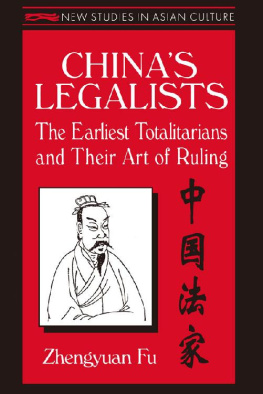

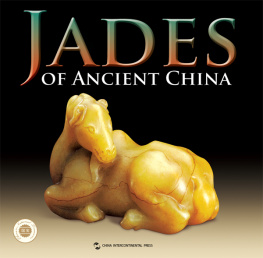

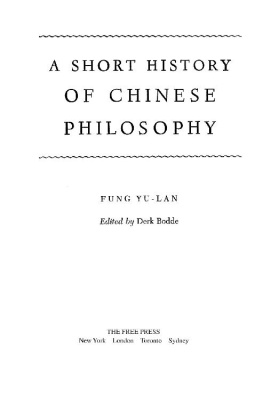
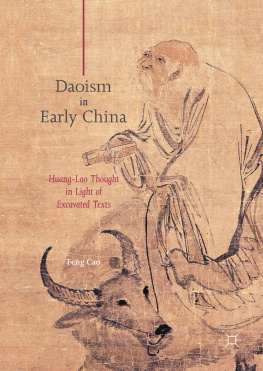
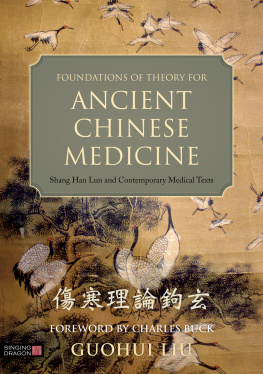


 NEW STUDIES IN ASIAN CULTURE
NEW STUDIES IN ASIAN CULTURE
